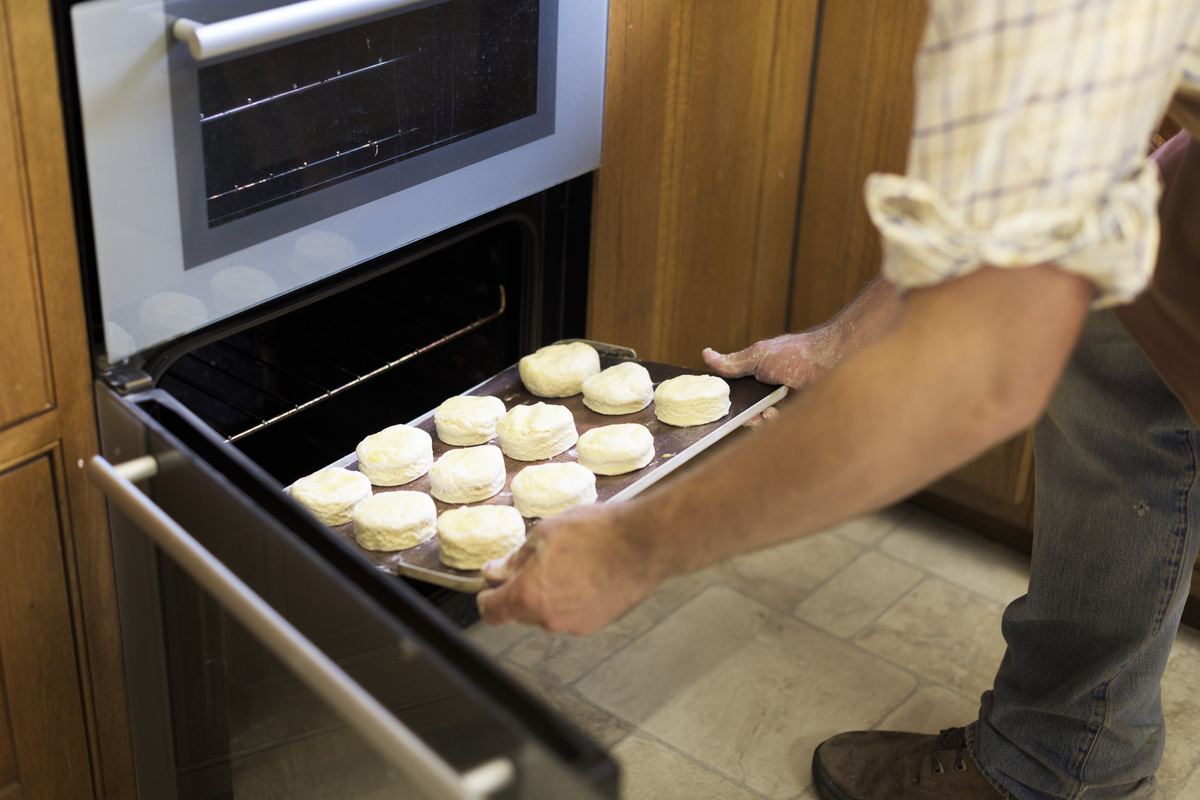Introduction:
Microwaving rice cakes may seem like a convenient snack option, but is it safe? In this comprehensive guide, we’ll delve into the reasons why microwaving rice cakes is not recommended. From potential health risks to quality concerns, we’ll cover it all to ensure you make informed decisions in the kitchen.
The Science Behind Microwaving Rice Cakes
Rice cakes, a popular low-calorie snack, come in various flavors and textures. Understanding the science behind microwaving rice cakes can enhance your snacking experience, ensuring you get a perfect crunch every time. This article delves into the composition of rice cakes, how microwaves interact with them, and potential chemical changes during the microwaving process.
Understanding the Composition of Rice Cakes
Rice cakes are made from puffed rice, which involves heating rice kernels under high pressure. This process expands the starch molecules, creating a light and airy texture. For an in-depth understanding of rice cakes’ nutritional value, refer to “Are Rice Cakes Healthy for You? An In-Depth Analysis.”
How Microwaves Interact with Rice Cakes
Microwaves heat food by causing water molecules to vibrate, generating heat through friction. Since rice cakes are relatively dry, microwaving them requires a careful balance to avoid overcooking. Learn more about the intricacies of microwaving these snacks in “Why Can You Not Microwave Rice Cakes? An In-Depth Exploration.”
Potential Chemical Changes During Microwaving
When microwaved, rice cakes may undergo slight chemical changes affecting their texture and taste. These changes are primarily due to the reaction of starches and any added flavors when exposed to heat. For a creative twist on traditional rice cakes, explore the “Chocolate Rice Cakes Recipe.”
Safety Concerns
When microwaving rice cakes, there are several safety concerns to consider. The risks range from overheating, which can lead to undesirable textural changes and potential fire hazards, to the release of harmful chemicals if inappropriate containers are used during the microwaving process.
Risks of Overheating Rice Cakes
Microwaving rice cakes for too long or at too high a power setting can cause them to overheat. Overheated rice cakes may become excessively hard, losing their characteristic light and airy texture. In extreme cases, this overheating can lead to charring or burning, presenting a fire risk, especially if the microwave is left unattended. It’s essential to monitor rice cakes closely while microwaving, adjusting the time and power settings as necessary to achieve the desired warmth and crispiness without compromising safety.
Release of Harmful Chemicals
The concern over the release of harmful chemicals during microwaving primarily pertains to the type of container used to heat food. Certain plastics, when microwaved, can leach chemicals into food, posing potential health risks. To safely microwave rice cakes, it’s advisable to use microwave-safe dishes made from materials like glass or ceramic that do not release harmful substances under high heat. Following these guidelines ensures that microwaving rice cakes is not only safe but also maintains their quality and nutritional value.
Fire Hazards
One of the significant risks associated with microwaving rice cakes is the potential for fire hazards. If rice cakes are microwaved for too long or at too high of a power setting, they can catch fire, posing a serious risk to safety and property. This risk is compounded if the microwave is left unattended while in use. To mitigate this risk, it is essential to always stay near the microwave when heating rice cakes, use microwave-safe cookware, and adhere to recommended microwaving times and power levels.
Compromised Texture and Taste
Alteration of Texture When Microwaved
Microwaving rice cakes can lead to a significant alteration in their texture. The ideal texture of a rice cake is supposed to be light and crispy, but when microwaved improperly, rice cakes can become chewy or overly hard. This alteration occurs because the microwave heats the rice cake unevenly, causing some parts to lose moisture and become tough, while others may remain too soft. The key to preserving the texture of rice cakes when microwaving is to use a low power setting and heat them for short intervals, checking frequently to prevent overheating.
Impact on Taste and Flavor
The impact of microwaving on the taste and flavor of rice cakes can be notable. While microwaving can warm the rice cakes, making them seem fresher, it can also lead to an undesirable change in flavor if they are overheated. This change is partly due to the potential for chemical reactions, such as the Maillard reaction, which can alter the natural flavors of the rice cakes. Furthermore, overheating can diminish the nuanced flavors that are characteristic of certain types of rice cakes, leading to a bland or burnt taste. To maintain the original taste and flavor of rice cakes, careful microwaving is essential, emphasizing the importance of moderation in heating time and power usage.
Nutritional Loss
Decrease in Nutritional Value
Microwaving rice cakes, especially when done excessively, can lead to a decrease in their nutritional value. The heating process can break down some vitamins and minerals, particularly those that are sensitive to heat, such as vitamin C and some B vitamins. While rice cakes are not typically high in these nutrients, any process that further reduces their nutritional content should be minimized to preserve their health benefits.
Loss of Essential Nutrients
The loss of essential nutrients during microwaving is not unique to rice cakes but is a concern for microwaving food in general. Nutrients like folate, thiamine, and others can diminish when exposed to the heat and electromagnetic radiation of microwaving. To mitigate this loss, it’s advisable to microwave foods, including rice cakes, for the shortest time possible and at the lowest effective power setting. Additionally, incorporating fresh, uncooked foods into the diet can help ensure a good intake of these heat-sensitive nutrients.
Alternatives to Microwaving Rice Cakes
Rice cakes are a popular snack among those looking for a light and healthy option. However, microwaving them can sometimes lead to undesirable results. Here are some alternatives and creative ways to enjoy rice cakes.
Healthy Snack Alternatives
When considering healthy snack alternatives, rice cakes stand out due to their low calorie content and versatility. They can be a part of a balanced diet when topped with nutritious ingredients.
Safe Heating Methods
The question of why you cannot microwave rice cakes is often asked. Instead of microwaving, try toasting your rice cakes for a delightful crunch. Toasting can enhance their flavor without compromising their structure or nutritional value.
Creative Toppings for Rice Cakes
Exploring creative toppings for rice cakes can transform them into delicious treats. From savory to sweet, the possibilities are endless. For a sweet option, consider spreading homemade chocolate spread on top of your rice cake for a quick dessert.
Discovering the World of Rice Cakes
Delve deeper into the world of rice cakes and their global variations. Each culture brings its unique twist to this simple snack, offering a plethora of flavors and textures to explore.
By incorporating these internal links, the article not only becomes more informative but also provides readers with a richer web experience, guiding them through a journey of discovery on the topic of rice cakes and beyond.
FAQs (Frequently Asked Questions)
Is it Safe to Microwave Rice Cakes?
Yes, it is generally safe to microwave rice cakes, provided that you use microwave-safe dishes and follow the recommended guidelines for microwaving. It’s important to avoid overheating, as this can lead to undesirable texture changes and potentially diminish the nutritional value of the rice cakes.
How Can I Heat Rice Cakes Safely?
To heat rice cakes safely in the microwave, place them on a microwave-safe plate and cover them with a microwave-safe cover to prevent them from drying out. Microwave on a low to medium setting for short intervals of 10-15 seconds, checking after each interval. This method helps ensure the rice cakes warm up evenly without becoming too hard or chewy.
Can Microwaving Rice Cakes Cause Them to Explode?
Rice cakes are unlikely to explode when microwaved, but they can pop or crackle due to the rapid heating of any moisture inside them. To avoid any mess or uneven heating, it’s best to microwave them at a lower power setting and for shorter durations.
What Are the Best Toppings for Rice Cakes?
Rice cakes are incredibly versatile and can be topped with a variety of ingredients to suit any taste. Popular toppings include peanut butter and banana, avocado and poached egg, cream cheese and smoked salmon, hummus and cucumber, or almond butter and fresh berries. The possibilities are endless, and you can mix and match toppings based on your dietary preferences and nutritional goals.
Are There Any Health Benefits to Eating Rice Cakes?
Rice cakes are low in calories, making them a popular choice for people watching their weight. They can also be a good snack option when eaten in moderation and paired with healthy toppings. However, since they are relatively low in nutrients, it’s best to include them as part of a balanced diet that includes a variety of other nutrient-dense foods.
Can I Store Microwaved Rice Cakes?
It’s best to consume rice cakes immediately after microwaving them for the best texture and flavor. Storing microwaved rice cakes can lead to them becoming tough or stale. If you have leftover rice cakes, store them in an airtight container at room temperature and reheat them briefly when ready to eat.
Conclusion
Microwaving rice cakes can be a quick and convenient way to enjoy this versatile snack. By following the guidelines for safe microwaving, you can ensure that your rice cakes warm up evenly without losing their texture or nutritional value. Whether you’re looking for a low-calorie snack or a base for a variety of toppings, rice cakes offer a blank canvas for your culinary creativity. Remember, the key to enjoying rice cakes as part of a healthy diet is to balance them with nutrient-dense foods and toppings that enhance their nutritional profile.

